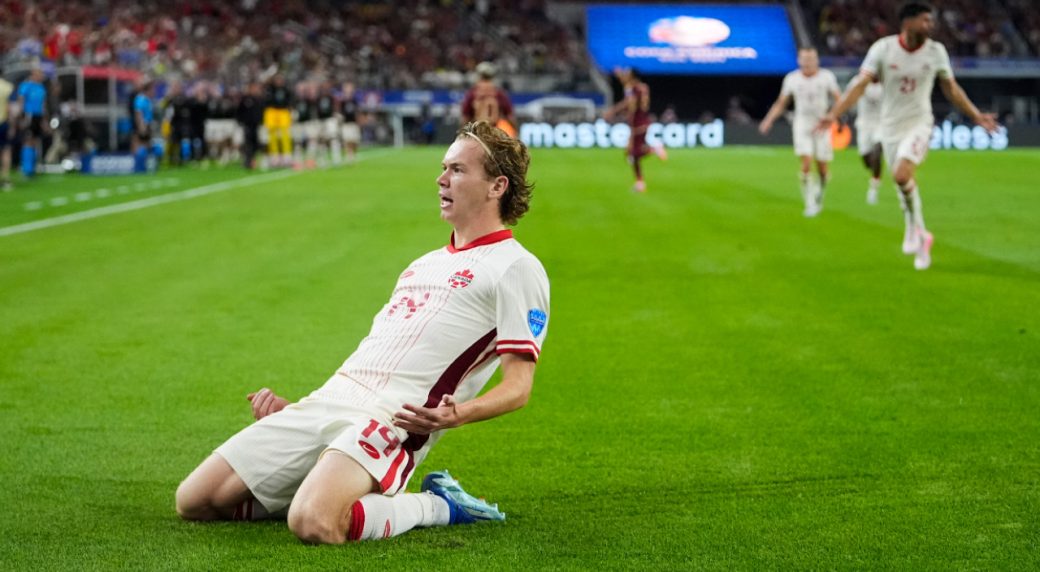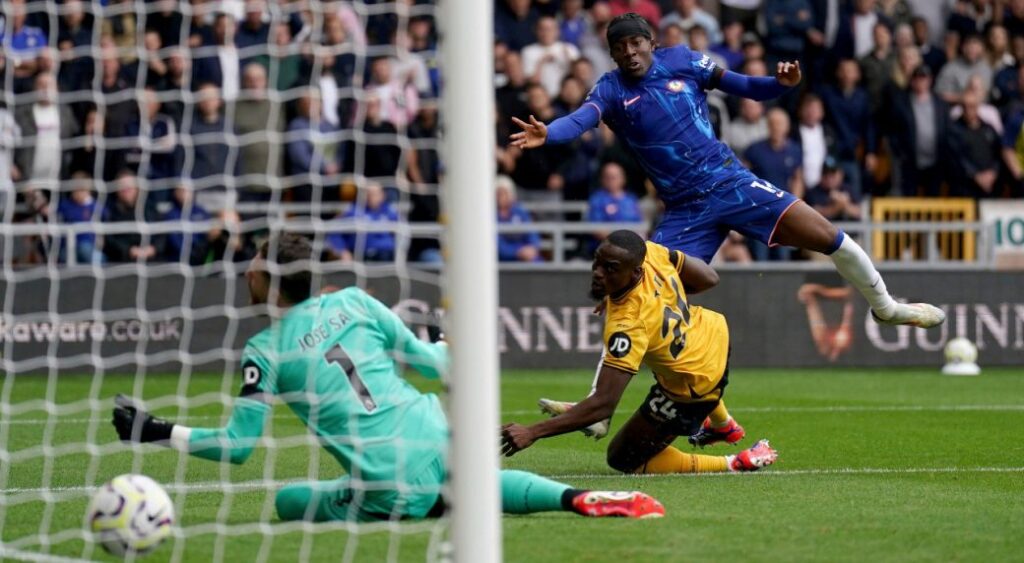Nearly two months after its historic run at the Copa América, the Canadian men’s soccer team returns to action this month with a pair of important international friendlies.
Canada’s matches against the United States (Saturday in Kansas City) and Mexico (next Tuesday in Arlington, Tex.) serve as crucial preparation for the Concacaf Nations League. The Canadians will take on as-of-yet to be determined opponent in the two-legged quarterfinals in November.
Les Rouges climbed eight spots in the latest FIFA world rankings from 48th to 40th on the back of their Copa América heroics. But they are still behind the U.S. (No. 16), Mexico (No. 17) and Panama (No. 35), who they will host in Toronto in another friendly on Oct. 15. Friendlies usually don’t mean much in the grand scheme of things. But coach Jesse Marsch is taking these matches very seriously.
“These next three games, how the results play out will affect what kind of opponent we get in November. So, it’s not like we’re playing for nothing here with these games. I think these are, right now, the three best opponents in the region,” Marsch told Sportsnet.
“And it’s perfect timing for us to have these matches after having to play mostly South American or European opponents that challenged us in really big ways. We’ll now take all those learnings, try to put them together and see if we can dominate some of these matches and what it can look like.”
The results have been encouraging for the Canadian men’s team since Marsch’s appointment as full-time manager in May. Canada tested itself in a pair of high-profile friendlies against the Netherlands and France, earning a credible 0-0 draw against the French. It followed that up with a super Copa América campaign that saw it go toe-to-toe in a pair of clashes with World Cup champions Argentina en route to a historic fourth place showing.
The U.S. and Mexico, on the other hand, have been going through tough times as they washed out at the Copa América, failing to get out of the group stage. Not surprisingly, both nations decided to make coaching changes after their respective Copa debacles.
This pair of friendlies against its Concacaf rivals gives Marsch’s side to further assert itself as the rising force within the region.
“Physically, we will be a lot for them. We have a lot of team speed. We have a lot of team size and athleticism. Those teams, even though having new coaches, are pretty ingrained. I’m not sure if [U.S. interim coach] Mikey Varas will play the exact same as Gregg Berhalter, but I think he’ll play something like that,” Marsch said.
“[Mexico coach] Javier Aguirre will play a version of how he plays, which can look 4-5-1 sometimes, 5-4-1 at other times, so we will be tested by their individual talent and their structure. But certainly, we want to go into those games feeling like we should want to play the way that we want, and we should want to try to see if we can dictate the way the game is played.”
Winning these games tops Marsch’s list of priorities for this international window. But he’s not just concerned about the results.
Before the national team broke up after the successful run at the Copa América, Marsch explained to the players what it’ll take for the side to build upon this success and reach the next level in establishing itself as the top nation in Concacaf.
“I challenged them to go back to their [pro] clubs and continue to implement the things that I had been working with them: the sprinting, the physicality, the aggressiveness in the way they play, the confidence to play more balls forward and not play so safe,” Marsh stated.
“I can say that from watching them play for their clubs that they’ve all done that, and they’ve raised their levels of performance. So, that’s been very positive. I will reinforce that, and I will let them know how positive it is, but we’ll make sure that we engage that in all ways.”
It’s a message that has clearly filtered down to the players, who are eager to get back at it for the first time since July.
Nashville SC winger Jacob Shaffelburg was one of the breakout stars of the entire Copa América. He ended up playing in all six games (four starts), tallying a goal and one assist, and played a crucial role in Canada’s run to the final four.
“Looking back on it, it’s one of those things where it’s like, ‘Wow, we did that,’ which is a really cool feeling,” Shaffleburg told Sportsnet.
Still, Shaffelburg insists Canada can’t afford to rest on its laurels, and that its memorable showing at the Copa América won’t end up meaning much unless it can build upon it, especially with the country set to co-host the 2026 FIFA World Cup.
“We have to stay hungry. From what I’ve seen the last few practices, they’ve been super intense. Everyone seems just as hungry as they were at Copa. We need to have that mentality to just stay hungry and kind of put the Copa América in the backseat. We can’t be talking about that all the time, so it’s in the past, and we just have to move on to these two games,” Shaffelburg said.
“We’re going into these games trying to get two wins, but also to continue to work on the things that we have since Jesse’s come in. It’s still been a short period of time working with Jesse, so just trying to get all the tactical stuff on the field and kind of smooth out any little knots that we’re still having,” Shaffelburg said.
Marsch will also use these two games to expand the Canadian player pool, having given midfielders Niko Sigur (HNK Hajduk Split) and Nathan Saliba (CF Montreal), and winger Stephen Afrifa (Sporting Kansas City) their first national team call-ups.
Sigur, a 20-year-old from Burnaby, B.C., was eligible for Croatia and played for the European nation at youth level. But he recently pledged his international allegiance to Canada after getting a FIFA-approved one-time nationality switch. Marsch described the young midfielder as a technical player with great on field intelligence and who can play different positions.
Convincing other dual nationals like Sigur to commit to Canada is “absolutely important,” according to Marsch.
“We want to maximize our player pool the best that we can. It’s like recruiting in college, and we’re almost treating it that way. We have ways of putting together different recruitment packages, and we’re really just in the phases of doing that. I’ve spent the last month and a half just getting to know some of [the dual national targets], and just speaking to them,” Marsch said.
Sigur is coming back from a longstanding ankle injury, so there’s a good chance he might not see action over the course of these two games.
But he insists there’s no place he’d rather be now than in training camp with his new international teammates.
“This is something that I’ve been thinking about for a while. … I was hoping I’d get called by Croatia for [Euro 2024], but after it didn’t happen, I had a deep think. I talked to my parents, my family, and I just thought that this was the right time to make the switch for Canada,” Sigur told Sportsnet.
“I could have come into camp for these friendlies without being locked in, but I didn’t want to go back and forth between the two nations. So, I just decided that I wanted to make the one-time switch [with FIFA] and just be a part of Canada, and not look back.”
John Molinaro is one of the leading soccer journalists in Canada, having covered the game for over 20 years for several media outlets, including Sportsnet, CBC Sports and Sun Media. He is currently the editor-in-chief of TFC Republic, a website dedicated to in-depth coverage of Toronto FC and Canadian soccer. TFC Republic can be found here.




Leave a Reply